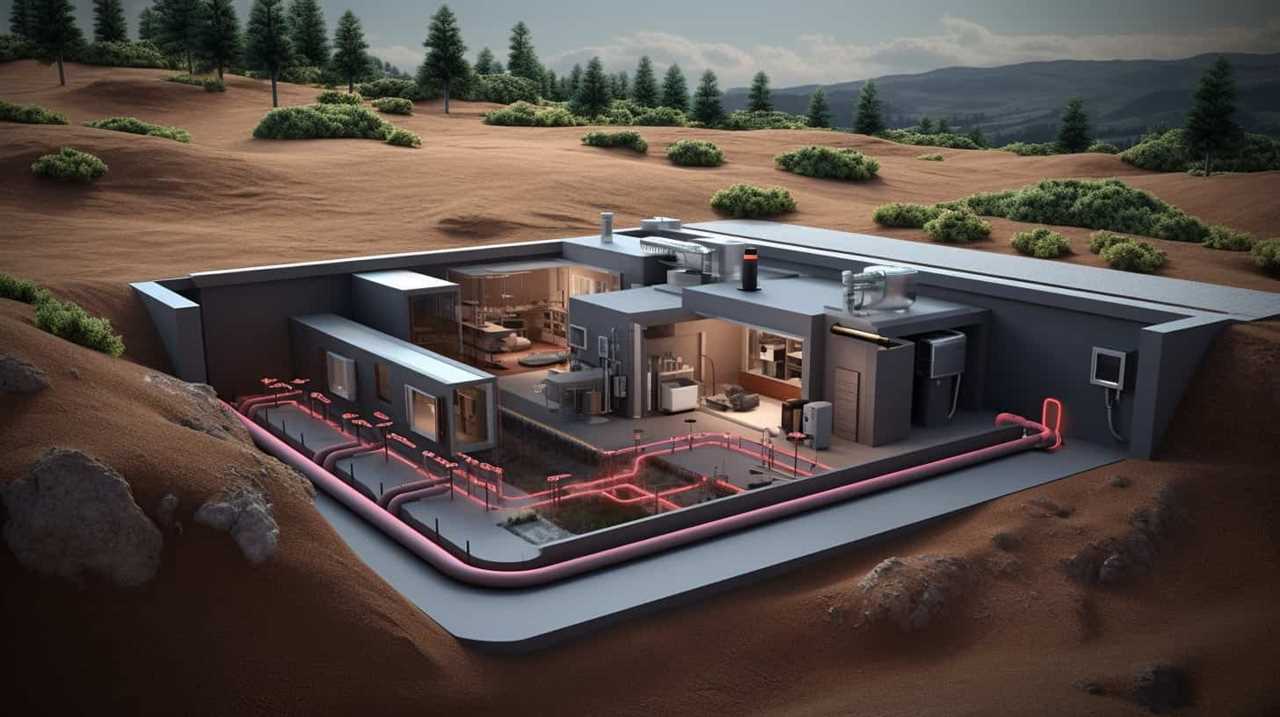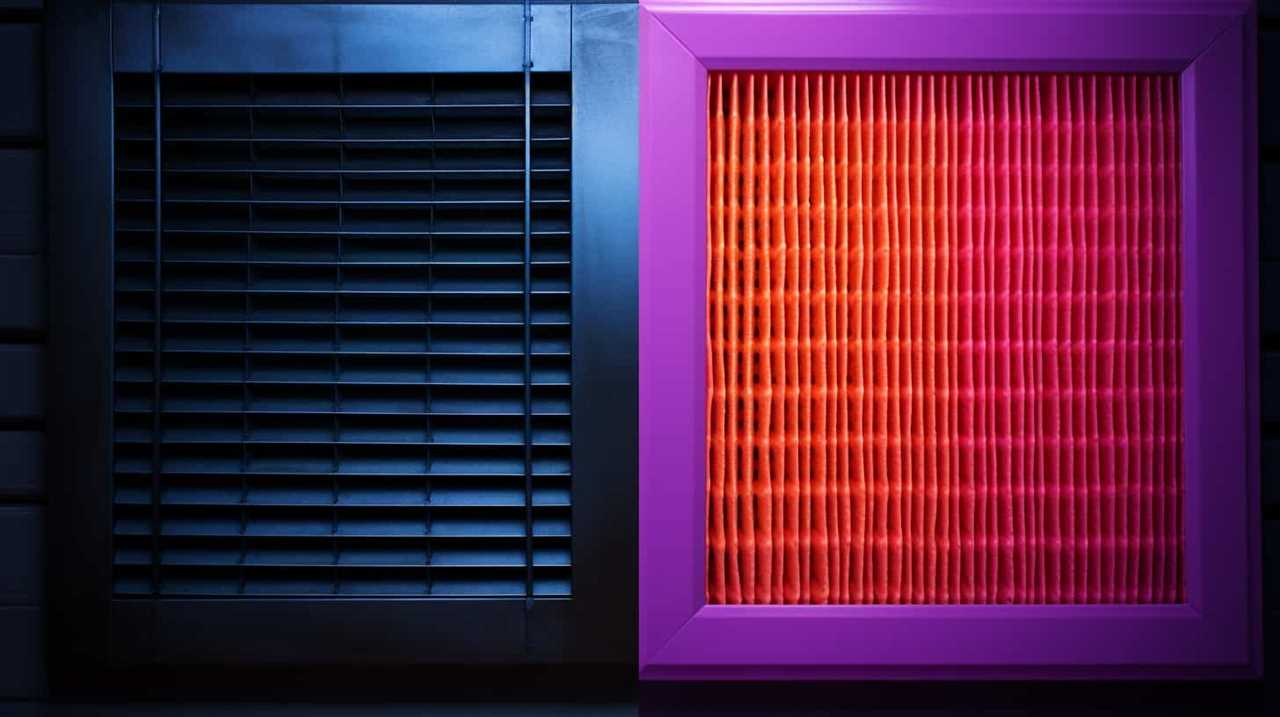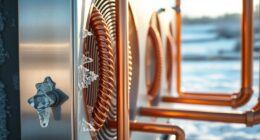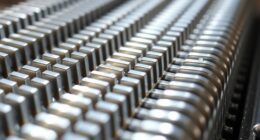Welcome to our energy-efficient heat pump guide! Our aim is to assist you in saving money while being comfortable and warm. By following our advice and gaining insights, you will grasp heat pump efficiency ratings and discover the advantages of upgrading.
Discover how to optimize your home’s heat pump efficiency and learn about common mistakes to avoid. We’ll also explore the latest innovations in energy-saving technology.
Get ready to take control of your energy usage and liberate yourself from high heating costs!
Key Takeaways
- Energy-efficient heat pumps can significantly reduce utility bills and save costs.
- Regular maintenance and proper care of the heat pump can improve its efficiency and lifespan.
- Upgrading to an energy-efficient heat pump can qualify for government incentives and rebates.
- Optimizing heat pump efficiency in the home through measures like sealing air leaks and using programmable thermostats can further enhance energy savings.
Understanding Heat Pump Efficiency Ratings
We’ll explain the different heat pump efficiency ratings and what they mean for your energy savings.

When it comes to heat pump installation, understanding efficiency ratings is crucial. The most common rating is the Seasonal Energy Efficiency Ratio (SEER), which measures the cooling efficiency. The higher the SEER rating, the more energy-efficient the heat pump is.
Another important rating is the Heating Seasonal Performance Factor (HSPF), which measures the heating efficiency. A higher HSPF rating means better heat output during colder months.
Additionally, it’s important to consider the Coefficient of Performance (COP), which measures the ratio of heat output to energy input.
When it comes to heat pump maintenance, ensuring regular inspections, cleanings, and filter replacements can help maintain efficiency and prevent costly repairs.

Benefits of Upgrading to an Energy-Efficient Heat Pump
By upgrading to an energy-efficient heat pump, we can save on both energy consumption and utility costs. Making this switch not only benefits our wallets, but also has a positive environmental impact. Here are some key benefits of upgrading to an energy-efficient heat pump:
-
Cost savings:
-
Energy-efficient heat pumps use less energy, resulting in lower utility bills.
-
They’re designed to maximize efficiency and reduce wasted energy.

-
Government incentives and rebates may be available for upgrading to energy-efficient models.
-
Environmental impact:
-
Energy-efficient heat pumps produce fewer greenhouse gas emissions, helping to combat climate change.
-
They reduce our reliance on fossil fuels, promoting a cleaner and more sustainable energy future.

-
By choosing an energy-efficient option, we contribute to the overall conservation of natural resources.
Upgrading to an energy-efficient heat pump not only saves us money, but also helps protect the environment for future generations.
Tips for Optimizing Heat Pump Efficiency in Your Home
Here are 5 tips to help us optimize the efficiency of our heat pump in our home.
-
Regular heat pump maintenance is crucial. Clean or replace air filters every few months to ensure proper airflow.

-
Keep the outdoor unit clear of debris and vegetation to prevent airflow blockage.
-
Consider installing a programmable thermostat to regulate temperatures and reduce energy waste.
-
Seal any air leaks in your home to prevent heat loss.
-
If you notice any issues with your heat pump, troubleshoot them immediately. Check for error codes, reset the system if necessary, and consult the user manual or a professional for further assistance.

Common Mistakes to Avoid When Using Heat Pumps for Energy Savings
To ensure optimal energy savings, it’s important for us to avoid common mistakes when using heat pumps. Here are three key points to keep in mind:
-
Proper Maintenance: Regular maintenance is crucial for the efficient operation of your heat pump. Make sure to clean or replace filters as recommended by the manufacturer. Keep the outdoor unit free from debris and vegetation to ensure proper airflow. Schedule professional inspections to identify and address any potential issues before they become major problems.
-
Choosing the Right Size: Selecting the appropriate size of the heat pump for your space is essential. An undersized unit will have to work harder to meet the heating or cooling demands, leading to increased energy consumption. On the other hand, an oversized unit may cycle on and off frequently, wasting energy. Consult with an HVAC professional to determine the right size for your specific needs.
Exploring the Latest Innovations in Energy-Efficient Heat Pump Technology
We will now explore the latest innovations in energy-efficient heat pump technology.

As we look towards the future of energy efficient heating, smart heat pump technologies are paving the way for a more sustainable and cost-effective way to heat our homes. These smart heat pumps are equipped with advanced features that optimize energy usage and maximize efficiency.
For example, some models come with intelligent sensors that monitor and adjust the temperature based on occupancy and weather conditions, ensuring optimal comfort while minimizing energy wastage. Additionally, advanced control systems allow homeowners to remotely manage and schedule their heat pump operations, further enhancing energy savings.
With these innovations, the future of energy-efficient heating is promising, providing us with greener and more economical solutions to keep our homes warm.
Frequently Asked Questions
Can a Heat Pump Be Used in Extremely Cold Climates?
In extremely cold climates, heat pumps can still be used efficiently. They provide numerous benefits, including cost savings and environmental friendliness. Heat pump efficiency allows for reliable heating even in frigid temperatures, making them a great option for cold climate homeowners.

What Is the Lifespan of an Energy-Efficient Heat Pump?
The lifespan of an energy-efficient heat pump varies depending on factors such as usage, maintenance, and climate. However, with proper care and regular maintenance, these heat pumps can last for 15-20 years.
How Much Noise Does an Energy-Efficient Heat Pump Produce?
The noise levels of energy-efficient heat pumps can vary depending on the model and installation. Excessive noise can affect the overall performance, so it is important to choose a pump with lower decibel ratings for a quieter and more efficient operation.
Are There Any Tax Credits or Incentives Available for Upgrading to an Energy-Efficient Heat Pump?
There are tax credits and government incentives available for upgrading to an energy-efficient heat pump. Check the eligibility requirements and take advantage of these savings opportunities to reduce your costs.
Can an Energy-Efficient Heat Pump Be Used for Both Heating and Cooling Purposes?
Yes, an energy-efficient heat pump can be used for both heating and cooling purposes. It provides an energy efficiency comparison and we can share best practices for heat pump maintenance to help you save.

Conclusion
In conclusion, upgrading to an energy-efficient heat pump is a smart choice for saving both money and energy.
By understanding heat pump efficiency ratings and implementing tips to optimize its performance, you can enjoy increased comfort while reducing your carbon footprint.
Don’t let common mistakes hinder your energy savings.
Stay informed about the latest innovations in energy-efficient heat pump technology and make a positive impact on both your wallet and the environment.

Embrace the warmth of savings and pave the way for a greener future.









